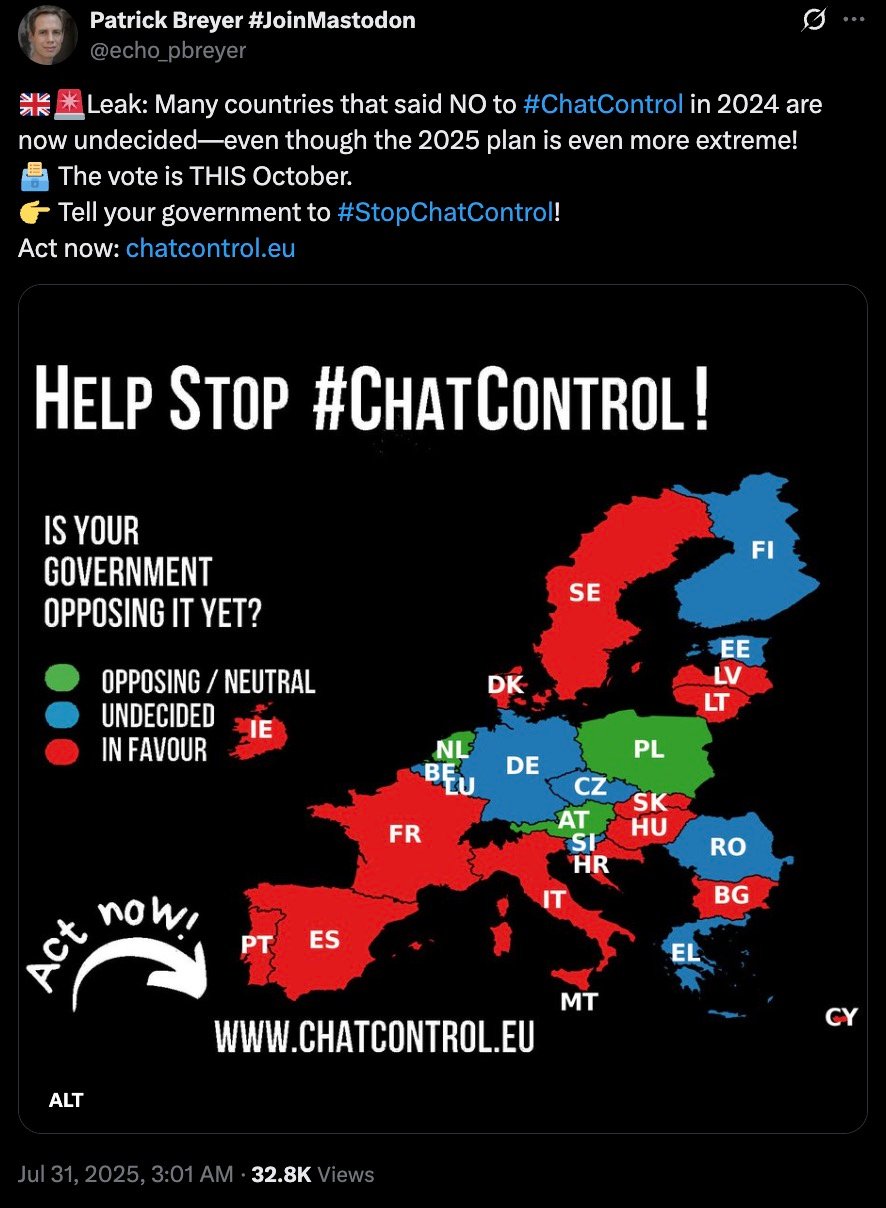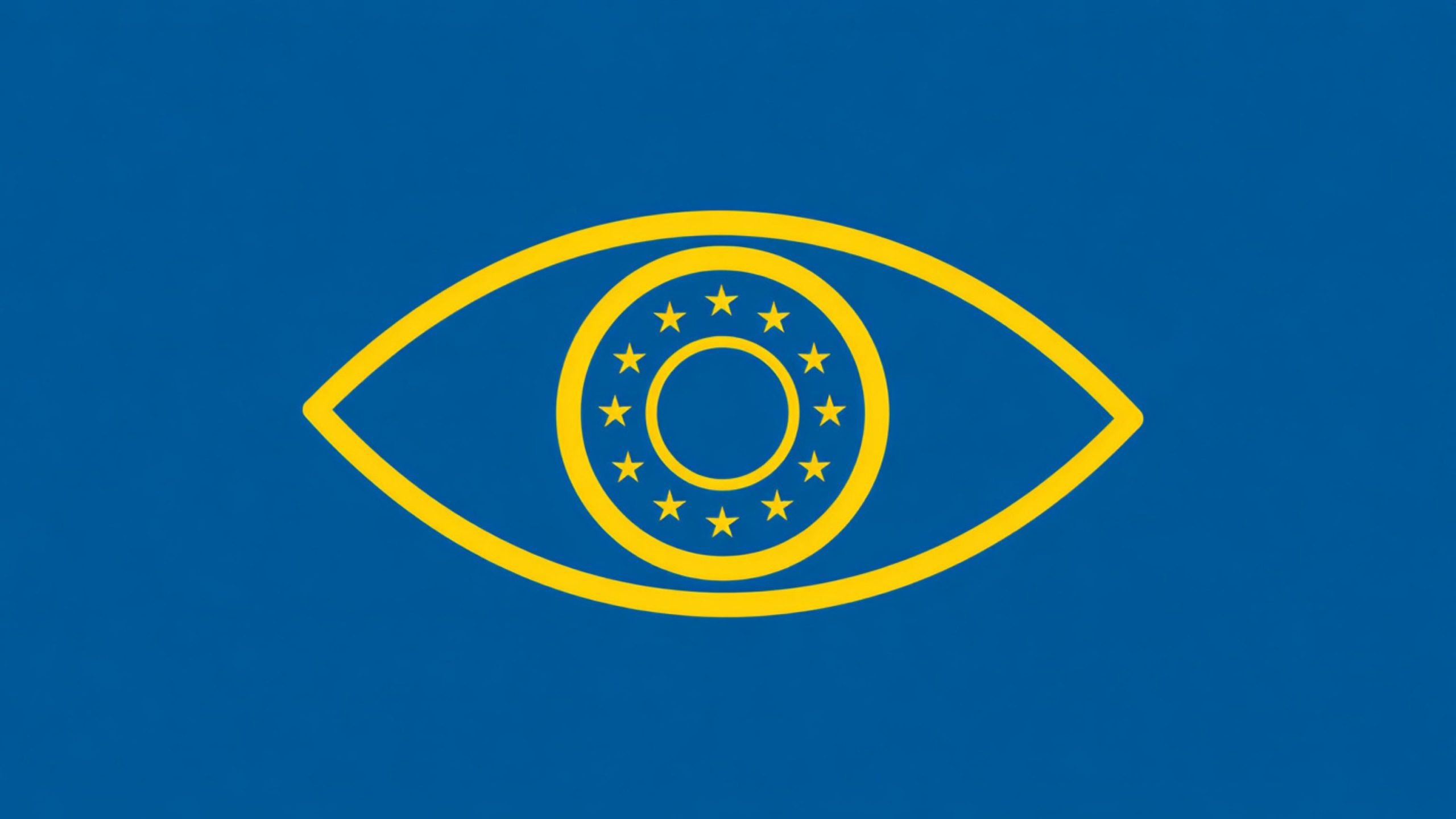The European Union is still wrestling with a controversial plan that would turn private messaging services into surveillance tools. For over three years, talks have stalled over whether providers should be forced to scan every user’s messages for possible illegal material and forward anything suspicious to law enforcement.
The European Commission is still pushing for a universal scanning requirement.
In contrast, the European Parliament insists any checks should apply only to unencrypted messages from people already under suspicion. Attempts to strike a deal have repeatedly fallen apart, with Poland the latest presidency to walk away without an agreement.
July brought a change in leadership of the Council of the EU, with Denmark stepping in and putting chat scanning back at the top of the legislative pile. Copenhagen wants this handled as a priority and wasted no time tabling a new draft on its very first day in charge.
Leaked records from a closed door July meeting show the Danish text closely tracks earlier proposals from Belgium and Hungary, with no concessions for encrypted conversations. A softer version from Poland, which would have made scanning voluntary and left encrypted chats alone, has been dropped entirely.
Out of 27 EU countries, 20 spoke during the July debate, each lodging what officials call a “comprehensive audit reservation.” Germany summed up the atmosphere by noting, “the familiar mood was clear.”
Italy, Spain, and Hungary have been in favor of mandatory chat scanning from the start. France could tip the balance since blocking the plan requires four countries representing at least 35 percent of the EU’s population. Paris has moved from tentative support to saying it could “basically support the proposal.”
Others remain cautious or opposed. Belgium, despite earlier enthusiasm, admits encrypted scanning is “a difficult topic nationally.” Estonia reports a “national conflict between security authorities and data protection officers regarding encryption and client-side scanning.” Austria is bound by a parliamentary vote against mandatory scanning or undermining encryption, a stance shared by the Netherlands. Luxembourg and Slovenia say they are still “not yet convinced.”
Poland warns the scheme weakens cybersecurity and opens the door to “attacks from abroad,” calling consent requirements meaningless because “it is not voluntary.” Germany has opposed encrypted scanning for two years but has yet to confirm whether the new government will stick to that position.
The Council’s own Legal Service concluded long ago that the plan clashes with fundamental rights. Their view remains: “The core problems of access to communications of potentially all users remain unchanged.” They stress that “client-side scanning is a violation of human rights and does not depend on the type of technology.”
Despite years of warnings from technologists, lawyers, and privacy campaigners, the decision now appears to hinge more on politics than evidence. Denmark has already circulated a lightly revised second draft. The next round of Council negotiations is set for September 12, with advocates hoping for final adoption by October 14.
Patrick Breyer, former MEP for Germany’s Pirate Party, says governments that opposed chat control last year are now wavering “even though the 2025 plan is even more extreme.”

If France and Germany swing behind Denmark’s push, Europe could soon see the largest government-mandated inspection of private communications in its history, conducted directly on people’s devices before encryption can protect them. For many, that would mark the end of truly private messaging in the EU.










